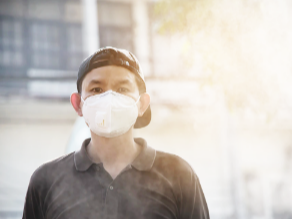Dear Colleagues,
The collection “Encyclopedia of Hygiene” is designed to combine scientific publications into a single collection of knowledge on hygiene and the impact of the environment on human health. It covers topics such as environmental pollution, electric and magnetic field waves, high-humidity conditions, heat shocks, climate change, non-communicable and emerging diseases, corrosive environments, vacuums, strong vibration, high impact and electrical loading, high levels of ultrasound and infrasound exposure, microplastics, new aero and food allergens, excessive ionizing radiation, etc. The impact of the environment on human health is becoming increasingly apparent, and it is essential to understand the causes and consequences of this impact. This collection provides comprehensive insights into the mechanisms of the interaction of environmental factors with the human body and the role of preventive measures in maintaining public health. It provides valuable information on the latest research and knowledge in this area, which can help individuals and organizations take measures to reduce the negative impact of environmental factors on human health.
We invite researchers and physicians to submit original manuscripts on topics related to hygiene. We are particularly interested in applications that present cutting-edge ideas in hygiene theory and practice, environmental issues, and hygiene hypotheses for autoimmune and allergic diseases; new approaches to hygiene education and behavior change; and critical empirical research that sheds light on the impact of hygiene on human health and well-being. We welcome submissions from a variety of disciplines including, but not limited to: epidemiology, microbiology, behavioral science, environmental science, and medical anthropology. Submitted articles will be carefully reviewed by our expert editorial board, which guarantees the highest standards of scientific reliability and publication quality. The collection will become a valuable resource for anyone interested in understanding the impact of the environment on human health.
Prof. Dr. Yury Zhernov
Prof. Dr. Oleg Mitrokhin
Prof. Dr. Natarajan Sriraam
Collection Editors
Please click here to find Guidelines for Submissions.
Institution: Department of General Hygiene, F. Erismann Institute of Public Health, I.M. Sechenov First Moscow State Medical University (Sechenov University), Moscow, Russia
Interests: hygiene; allergology and immunology; dermatology and venereology; virology; infectious diseases; epidemiology
Institution: Department of General Hygiene, F. Erismann Institute of Public Health, I.M. Sechenov First Moscow State Medical University (Sechenov University), Moscow, Russia
Interests: hygiene; epidemiology; COVID-19; sanitary regulations; public health
Institution: Center for Medical Electronics and Computing, M.S. Ramaiah Institute of Technology, Bangalore, India
Interests: gerontology and geriatrics; ageing science; public health; medical electronics
- 1.4K
- 10 Mar 2023
- 1.2K
- 21 Apr 2023
- 1.1K
- 10 Mar 2023

